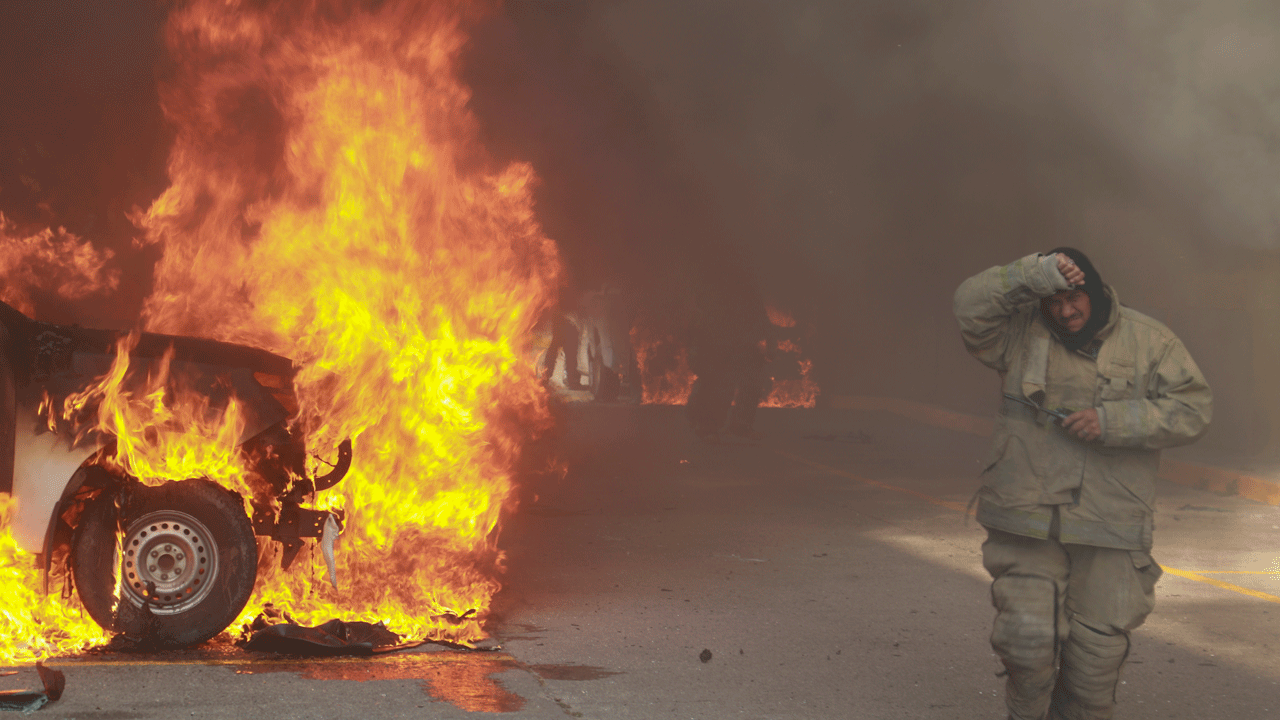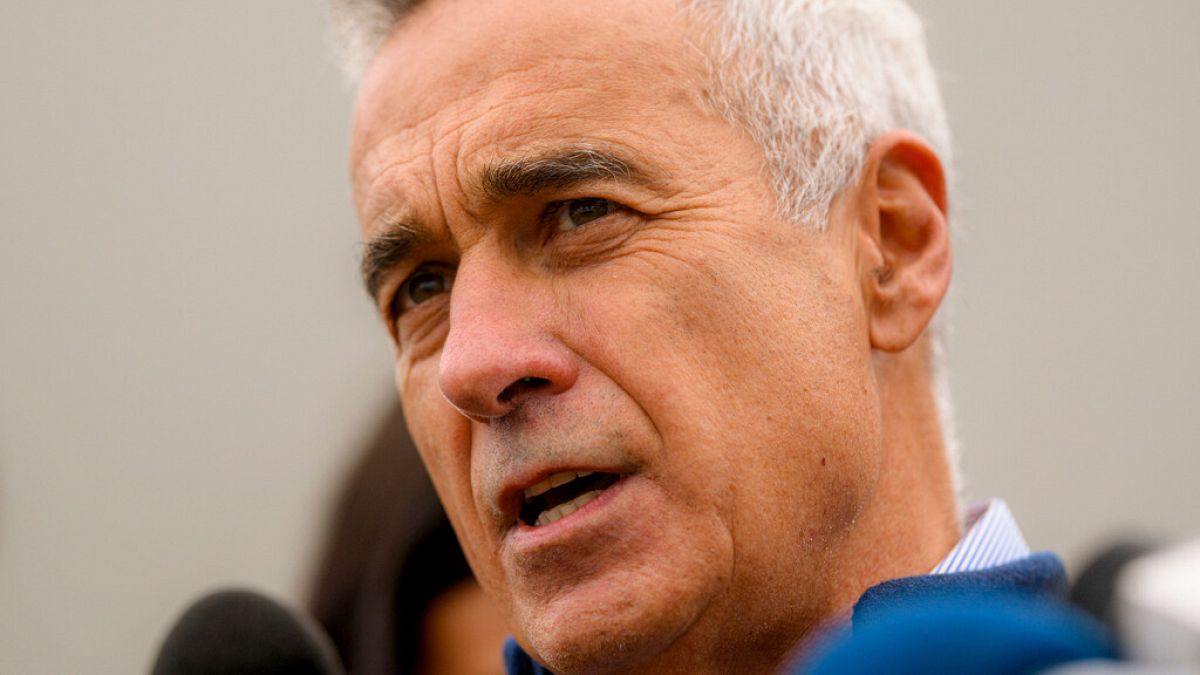Protesters in southern Mexico set state government building afire and torch a dozen vehicles
A Mexican state government building and at least a dozen cars were set afire by protesters in the city of Chilpancingo on Monday; they demand answers in the case of 43 students who disappeared.

CHILPANCINGO, Mexico (AP) — Protesters in southern Mexico set the state government building afire Monday and torched at least a dozen cars in the parking lot.
The protests occurred in the violence-wracked city of Chilpancingo, the capital of the Pacific coast state of Guerrero.
PROTESTERS USE PICKUP TRUCK TO RAM DOWN DOORS OF MEXICAN PRESIDENTIAL PALACE
The protesters are demanding answers in the case of 43 students at a rural teachers college who disappeared in 2014. Another student from that college was killed in a confrontation with police in March.
The Guerrero state government said in a statement that it "regrets and condemns the violent acts." The government noted the state interior secretary had resigned following the March confrontation with students. The police officers involved are under investigation in the death.
Images of the protests showed at least a dozen vehicles engulfed in fire and flames shooting out of the windows of the state office building, which is near the main highway leading from Mexico City to Acapulco. The building, which houses the governor's office, was ransacked.
Students at the radical Ayotzinapa teachers’ college, located on the outskirts of Chilpancingo, are known for their violent protests, which often involve hijacking buses and delivery trucks.
In March, protesters allied with the college commandeered a pickup truck and used it to ram down the wooden doors of Mexico City’s National Palace.
They battered down the doors and entered the colonial-era palace, where the president lives and hold his daily press briefings, before they were driven off by security agents. The palace is a historic structure dating back to the 1700s, and was built on the site of the Aztec emperors’ palace.
The demonstration, like many others over the years, was called to protest the abduction and murder of 43 students a decade ago. The mass disappearance remains one of Mexico’s most infamous human rights cases.
In 2014, a group of students were attacked by municipal police in the southern city of Iguala, Guerrero, who handed them over to a local drug gang that apparently killed them and burned their bodies. Since the Sept. 26 attack, only three of their remains have been identified.
After an initial cover up, last year a government truth commission concluded that local, state and federal authorities colluded with the gang to murder the students in what it called a "state crime."
The under-funded radical rural teachers’ colleges in Mexico have a decades-long tradition of violent protests. In fact, when they were abducted, the students themselves had been hijacking passenger buses which they were going to use to travel to another protest.
What's Your Reaction?
















